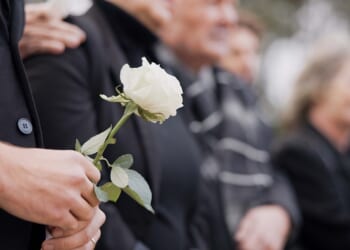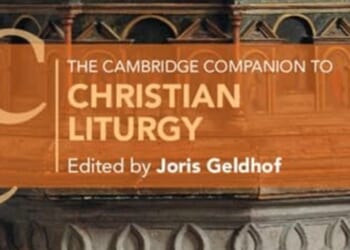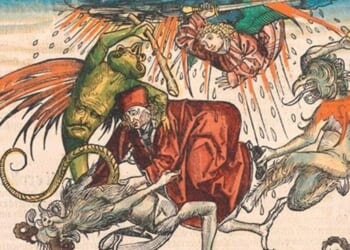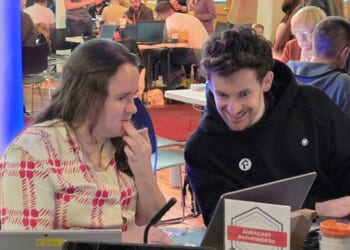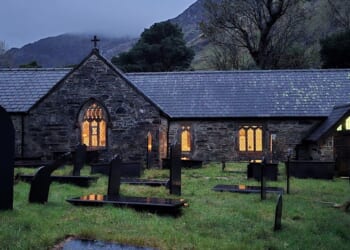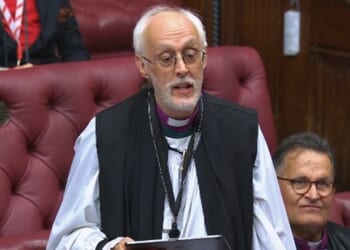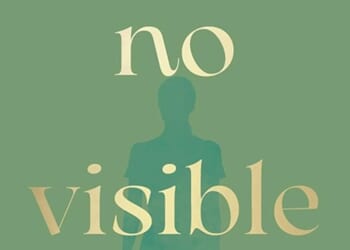Confusion on conversion therapy
From Professor Jim McManus
Madam, — The claim that a ban on conversion therapy would criminalise mainstream Christian teaching (News, 31 October) is both misleading and harmful. The 2024 consensus statement on conversion therapy makes this clear and is signed by the NHS, expert professional bodies, and royal colleges, including the Association of Christians in Counselling.
It is a discredited and damaging practice that has no place in ethical psychological care or Christian pastoral ministry. The evidence is clear — such interventions increase the risk of depression, anxiety, and suicidality. As a psychologist, scientist, and practising Christian, I can say unequivocally: conversion therapy is not therapy. Over the past 15 years, I have worked on the mental-health impact of conversion-type efforts, and have seen first hand the results of its harm.
Mainstream Christian theology, rooted in the dignity of the human person and the grace of God, does not require the suppression or “conversion” of someone’s sexual orientation. Pastoral care that respects conscience and identity is not under threat from a well-drafted ban. What are under threat — and rightly so — are coercive, harmful practices masquerading as care, which have no basis in scientific evidence, and a grounding in a warped theological anthropology that sees LGBTQ people as deformed.
Conversion therapy seeks LGBTQ people as defective. But what are defective are the warped theological anthropology that promotes it and the dehumanising damage that it brings to people who undergo it.
To suggest that banning abuse is an attack on faith is to confuse pastoral guidance with psychological HARM.
JIM McMANUS
Chair, Behavioural Science and Public Health Network
Address supplied (Cardiff)
Mullally and the C of E position on abortion
From the Revd Dr Emma Percy
Madam, — The Bishop of London and Archbishop-designate of Canterbury, the Rt Revd Sarah Mullally, wishes to clarify that she should not be labelled as pro-choice. (News, 24 October). She rightly states that “this is a complex debate, and I don’t think my or others’ views can be so simply categorised.” So I am disappointed that she then falls back on the statement that the Church of England has been using since 2005.
This statement maintains “principled opposition to abortion . . . with a recognition that there can be strictly limited conditions under which abortion may be preferable to any available alternatives”. Despite her desire to show compassion to those making abortion decisions, this statement offers little in the way of pastoral care. Nowhere does the Church of England provide any elucidation of these “strictly limited conditions”. No resources or discussion of current theological, ethical, and pastoral thinking on the subject are offered.
Government statistics show that poverty is one factor that affects abortion decisions. They may also be shaped by the circumstances of the conception, the relationships around the woman, her health, and the health of the developing life. Which of these might meet the grade of the limited conditions?
The alternative to an abortion is to continue a pregnancy, with all that this entails, and to bring a child into the world whose mother you will always, at some level, be. Like Bishop Mullally, I find the characteristic of choice unhelpful: many women do not feel that they have a clear choice. Within the realities of their life, it does not seem responsible or even possible to continue.
If we really want to show compassion, we need to develop a better and more nuanced statement from the Church of England on the topic of abortion and also situate abortion decisions within wider discussions about the realities of the lives of the many women who, as Bishop Mullally says, make “heart-wrenching decisions” (June 2025).
EMMA PERCY
Senior Lecturer in Feminist Theology and Ministry Studies
School of Divinity, History, Philosophy and Art History
Aberdeen AB24 3BU
Inter Faith Week speaks to current circumstances
From Catriona Robertson
Madam, — Inter Faith Week starts on Sunday, against a backdrop of high levels of anti-Jewish and anti-Muslim hate crime, reactive public debate, and the fallout here from conflict in the Holy Land.
Recently, I saw a Jewish man in London slip his kippah off before stepping out on to the street. A Muslim friend waited in a shop to be served before slowly realising her headscarf made that unlikely. A Sikh woman was raped in the West Midlands and was reportedly told by her attackers to get out as she didn’t belong here. There have been targeted killings on Yom Kippur and, in a previous year, during Ramadan. None of this is OK.
Interreligious activity is not primarily about information: I will never know all about my own faith, let alone everyone else’s. It is more about an approach to what we don’t know and what we may fear. It is not an invitation to agree or to approve, but more a curiosity about where people are coming from, and about what is profoundly important to them.
In a world in which the majority is religious, policymakers and faith leaders won’t be able to help to shape the future unless they have some idea about what is deeply embedded in many people’s lives and cultures.
Interfaith engagement at any level needs to be able to bear the weight of serious disagreement. We revisit assumptions and deepen our own inner life as we try to understand someone else’s.
My hope is that Inter Faith Week sharpens our minds while it softens our hearts. The Anglican Communion’s Generous Love (2008) is not a bad place to start.
CATRIONA ROBERTSON
Former Director of the Christian Muslim Forum
Address supplied
Death without euphemisms, despite their pedigree
From Mr Christopher Daws
Madam, — I wholly support the Revd Daniel Sandham’s resistance to modern euphemisms for death and dying (Comment, 31 October).
My wife, Richenda, was a lay minister (Reader) from 2011. She was the much acclaimed and widely mourned editor of Transforming Ministry, the national magazine for lay ministers. Lay ministers, at least in those dioceses that provide them with the magazine, saluted the radical improvements that she made to produce a quarterly magazine that engaged them and helped them in their ministry.
She died in July, victim before her 69th birthday of the terminal pulmonary fibrosis. We had no doubt that she had died. Her last service — long, overcrowded, and deeply absorbing — was a funeral, and no other word could describe it.
She knew where she was going. Her last message left us weaker brethren with tears in our eyes: “I love everybody. No one be sad. It means I have gone home.”
CHRISTOPHER DAWS
Coombe, Crab Mill Lane
Lea, Malmesbury
Wiltshire SN16 9NF
From Mrs Helen Ball
Madam, — The Revd Daniel Sandham deplores the contemporary use of “pass” and “pass away” as a euphemism for dying. This way of talking about death has, however, very long roots in our religious tradition.
For example, I have seen references to the “passing” of a saintly hermit in The Life of Bartholomew of Farne, which has been extant since at least the 13th century.
HELEN BALL
6 Christ Church Oval
Harrogate HG1 5AJ
Changing banks — but where are the branches?
From Dr John Wallace
Madam, — I refer to Judith Russenburger’s letter (31 October). Would that switching banks were so simple. My church in Bedfordshire, in a town of 50,000 inhabitants, has accounts with CAF via HSBC and NatWest. Although strongly encouraging online giving, besides having a card machine, we still get between £400 and £500 cash weekly both from collections and other activities, e.g. a toddler group. The C of E culture seems to shame you into putting something “in the bag” even if you have already made a substantial online donation.
Both banks have now closed their branches, as have Barclays and Lloyds. It is suggested that we use the already inadequate post office, but it has significant limitations on accepting cash deposits, even if you want to queue for more than 20 minutes. I now have to travel 12 miles every week to Milton Keynes to bank our offertory. What does that do to reduce the church’s carbon footprint?
Perhaps the Church should be campaigning for banks to be accessible as community resources. They have “hubs” in our local library, not for paying in cash, but only to increase their investment business.
JOHN WALLACE
14 Church Street
Leighton Buzzard LU7 1BT
From Rosie Venner
Madam, — Judith Russenberger is right to highlight the part played by banks in financing fossil fuels and to urge churches to move their money to banks that are not funding the climate crisis. We would welcome more churches’ and dioceses’ joining our efforts to speak up for wider financial-sector change, too, including lobbying banks at their AGMs and seeking policy solutions from the Government.
This is not only about climate justice but intergenerational justice. The children and young people in — or missing from — our churches (News, 31 October) face an increasingly insecure future marked by conflict and climate chaos. The JustMoney Movement is urging pension funds at the World Pension Summit to act in the best interests of young people by supporting a rapid, just green transition.
A holistic understanding of mission highlights the urgency and relevance of the gospel to young people’s lives, calling on Christians to transform unjust structures and safeguard creation. Each of us, through where we bank, invest, and campaign for change, can help shape a future where young people can flourish.
ROSIE VENNER
Director of Movement Building
JustMoney Movement
3 Lilburne Close
Worcester WR5 1TH
Can national Church remain at odds with nation?
From Sir Tony Baldry
Madam, — In 2013, on a free vote, both Houses of Parliament passed the Marriage (Same Sex Couples) Act with substantial majorities, reflecting contemporary societal, moral, and ethical norms.
If the Church of England cannot find a way to accommodate contemporary societal, moral, and ethical values, then the Church of England cannot be surprised if the nation increasingly ceases to perceive the Church of England as the Church of the nation.
In these circumstances, the Church of England cannot be surprised if, in the lifetime of many of us, the position of the Archbishops and Bishops in the House of Lords is no longer secure.
The Church of England in these circumstances cannot be surprised if the Service of the next Coronation looks very different from the service at the last Coronation.
Parliament decided way back in the 1920s that the Church of England should be able to determine its own doctrine and practice, but never before in the history of the Church of England has the Church been so far behind the rest of society on an issue. Sooner or later, the failure of the Church of England to reflect the society of which it is part will have consequences for the Church.
TONY BALDRY
(Second Church Estates Commissioner 2010-15)
Dovecote House
Bloxham OX15 4ET
Well-read columnist
From the Revd Matt Woodcock
Madam, — Once I cleared up my spilt cup of tea and recovered from the shock revelation that Canon Angela Tilby had been devouring the bonkbuster novels of Jilly Cooper, I found her column (Comment, 17 October) funny, inspiring, and full of deep truth. Your columnist never fails to surprise and enlighten me.
MATT WOODCOCK
32 Carr Lane, Acomb
York YO26 5HX
Botanical reflections after reading the scriptures
From Mr Graham Baldock
Madam, — I write further to the Revd Dr Cally Hammond’s botanical puzzling (Sunday’s Readings, 3 October). As a keen gardener, I have long been intrigued by Amos’s phrase “a dresser of sycamores”. Experience tells me that this does not make sense.
Recently, on holiday in North Cyprus, I vsited St Nicholas’s Cathedral, Famagusta, now a mosque. As I have a club foot and was wearing orthopaedic boots, it was not practical for me to enter. Instead, I sat under a shady tree outside the west end of the building. I was told that the tree was an indigenous sycamore. As I looked up at its trunk and spreading branches, all was revealed. It was fig sycamore, Ficus sycamorus.
Wikipedia gives an illustrated description, fascinating etymology, and much more, including culture significance in Judaism and Christianity.
Now I know what I am up to, should I wish to dress a sycamore.
GRAHAM BALDOCK
10 Kippax Avenue, Wells
Somerset BA5 2TT
The Editor reserves the right to edit letters










